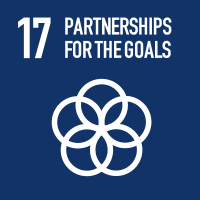Studying at the University of Verona
Here you can find information on the organisational aspects of the Programme, lecture timetables, learning activities and useful contact details for your time at the University, from enrolment to graduation.
Study Plan
This information is intended exclusively for students already enrolled in this course.If you are a new student interested in enrolling, you can find information about the course of study on the course page:
Laurea magistrale in Governance dell'emergenza - Enrollment from 2025/2026The Study Plan includes all modules, teaching and learning activities that each student will need to undertake during their time at the University.
Please select your Study Plan based on your enrollment year.
1° Year
| Modules | Credits | TAF | SSD |
|---|
1 module between the following1 module between the following1 module between the following2° Year activated in the A.Y. 2024/2025
| Modules | Credits | TAF | SSD |
|---|
1 module between the following1 module between the following1 module between the following| Modules | Credits | TAF | SSD |
|---|
1 module between the following1 module between the following1 module between the following| Modules | Credits | TAF | SSD |
|---|
1 module between the following1 module between the following1 module between the following| Modules | Credits | TAF | SSD |
|---|
Legend | Type of training activity (TTA)
TAF (Type of Educational Activity) All courses and activities are classified into different types of educational activities, indicated by a letter.
Governance of international crises (2023/2024)
Teaching code
4S003637
Academic staff
Coordinator
Credits
9
Language
Italian
Scientific Disciplinary Sector (SSD)
IUS/13 - INTERNATIONAL LAW
Period
2° periodo lezioni - GEM (aprile/maggio), 2° periodo lezioni - GEM (febbraio/marzo)
Courses Single
Authorized
Learning objectives
The programme provides a wide-ranging analysis of institutional and normative aspects of the gov-ernance of international crises. The aim of the course is to provide students with the ability to understand functions, purposes and characteristics of the international intervention in areas of crisis. In this respect, students will develop an in-depth knowledge of the legal and institutional framework for military humanitarian interventions, of the rules of engagements of military contingents deployed in host-states and of the accountability mechanisms addressing their violations. In line with the aims of the masters’ programme, in particular concerning the acquisition of legal skills, students will acquire the capacity to identify the applicable legal regime and to apply it to concrete situations, while seeking possible solutions through sound legal reasoning and argumentation.
Prerequisites and basic notions
None
Program
-
Bibliography
Didactic methods
-
Learning assessment procedures
-
Evaluation criteria
-
Criteria for the composition of the final grade
-
Exam language
Italiano



